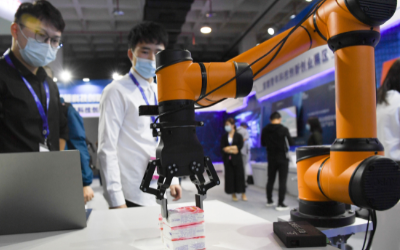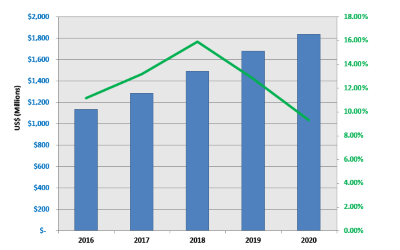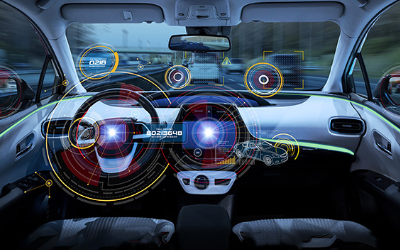Chinese EV startup Byton readies 1st sedan, plans for U.S. launch
Byton, a Chinese EV startup that wants to sell cars stateside beginning in 2020, previewed its first sedan in a futuristic concept car that promises Level 4 autonomous driving within three years and a range around 400 kilometers (250 miles).
The budding brand has also decided on a nameplate nomenclature across its lineup.
The upcoming sedan will be the K-Byte. Byton's first crossover, based on the concept unveiled in January at CES in Las Vegas, will be called the M-Byte.
Why byte? Because it embodies the brand name, which is short for "bytes on wheels" in a nod to the ambition of developing a next-generation smart device, not just an automobile.
Byton CEO Carsten Breitfeld unveiled the K-Byte Concept on June 12 ahead of the CES Asia trade show in China. Byton aims to start selling the sedan in China in 2021 and in the U.S. shortly thereafter. The M-Byte crossover is scheduled to hit the Chinese market in 2019 and land stateside in 2020. Both vehicles will be manufactured at the company's first assembly plant, which is being built on the outskirts of Nanjing, west of Shanghai.
The third vehicle in the emerging lineup could be a multipurpose vehicle, Breitfeld said.
"We want to create a next-generation smart device," he said.
Byton's vehicles will ride on the same platform and electric powertrain.
The batteries for the crossover and sedan will come in two variants, Breitfeld said. The base-model M-Byte crossover gets a 71-kilowatt-hour battery with a 400-kilometer (250 miles) range; a more powerful 95-kilowatt-hour battery option will achieve 530 kilometers (325 miles).
Although the K-Byte sedan will get the same batteries, it should achieve longer ranges thanks to better aerodynamics and a lighter overall weight, Breitfeld said.
Byton will assemble the battery packs with cells supplied by Chinese battery giant Contemporary Amperex Technology, more commonly known as CATL.
The K-Byte will leverage software from autonomous driving firm Aurora to achieve Level-4 autonomy, Byton said. The company will start rolling out Level-4 prototypes as early as this year with an eye to making Level-4 vehicles ready for commercialization around the end of 2020 or early 2021.
New twists on the K-Byte include a slender, roof-mounted module that houses lidar sensors and delivers a round-view panoramic view. Additional lidar sensors sit under the side-view mirrors and retract when the car isn't running in autonomous mode.
While the K-Byte will be the first Byton vehicle enabled with Level-4 driving, customers will be able to use the hands-off driving feature only in limited areas that support it, Breitfeld said.
The upcoming sedan will be the K-Byte. Byton's first crossover, based on the concept unveiled in January at CES in Las Vegas, will be called the M-Byte.
Why byte? Because it embodies the brand name, which is short for "bytes on wheels" in a nod to the ambition of developing a next-generation smart device, not just an automobile.
Byton CEO Carsten Breitfeld unveiled the K-Byte Concept on June 12 ahead of the CES Asia trade show in China. Byton aims to start selling the sedan in China in 2021 and in the U.S. shortly thereafter. The M-Byte crossover is scheduled to hit the Chinese market in 2019 and land stateside in 2020. Both vehicles will be manufactured at the company's first assembly plant, which is being built on the outskirts of Nanjing, west of Shanghai.
The third vehicle in the emerging lineup could be a multipurpose vehicle, Breitfeld said.
"We want to create a next-generation smart device," he said.
Byton's vehicles will ride on the same platform and electric powertrain.
The batteries for the crossover and sedan will come in two variants, Breitfeld said. The base-model M-Byte crossover gets a 71-kilowatt-hour battery with a 400-kilometer (250 miles) range; a more powerful 95-kilowatt-hour battery option will achieve 530 kilometers (325 miles).
Although the K-Byte sedan will get the same batteries, it should achieve longer ranges thanks to better aerodynamics and a lighter overall weight, Breitfeld said.
Byton will assemble the battery packs with cells supplied by Chinese battery giant Contemporary Amperex Technology, more commonly known as CATL.
The K-Byte will leverage software from autonomous driving firm Aurora to achieve Level-4 autonomy, Byton said. The company will start rolling out Level-4 prototypes as early as this year with an eye to making Level-4 vehicles ready for commercialization around the end of 2020 or early 2021.
New twists on the K-Byte include a slender, roof-mounted module that houses lidar sensors and delivers a round-view panoramic view. Additional lidar sensors sit under the side-view mirrors and retract when the car isn't running in autonomous mode.
While the K-Byte will be the first Byton vehicle enabled with Level-4 driving, customers will be able to use the hands-off driving feature only in limited areas that support it, Breitfeld said.








